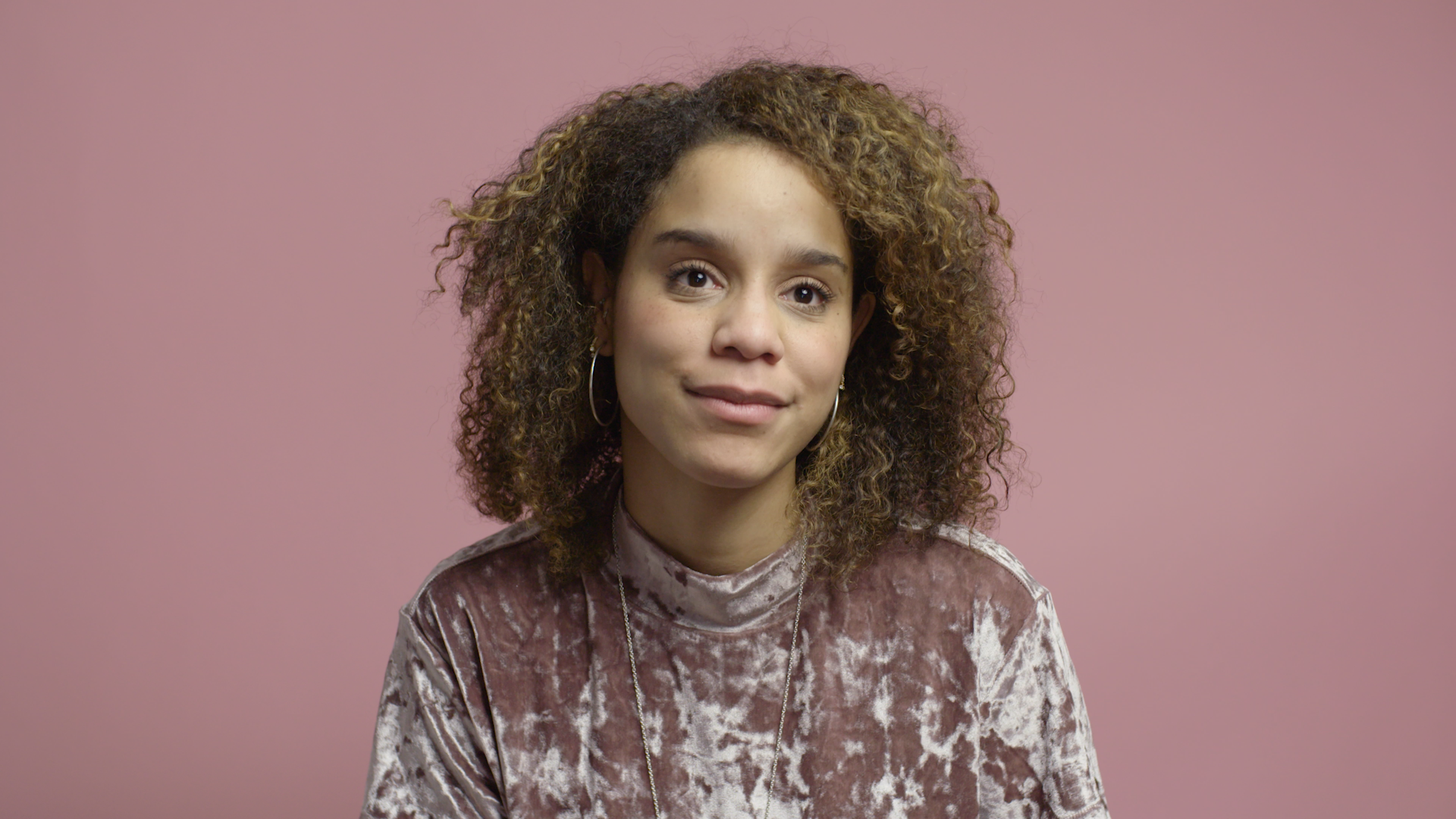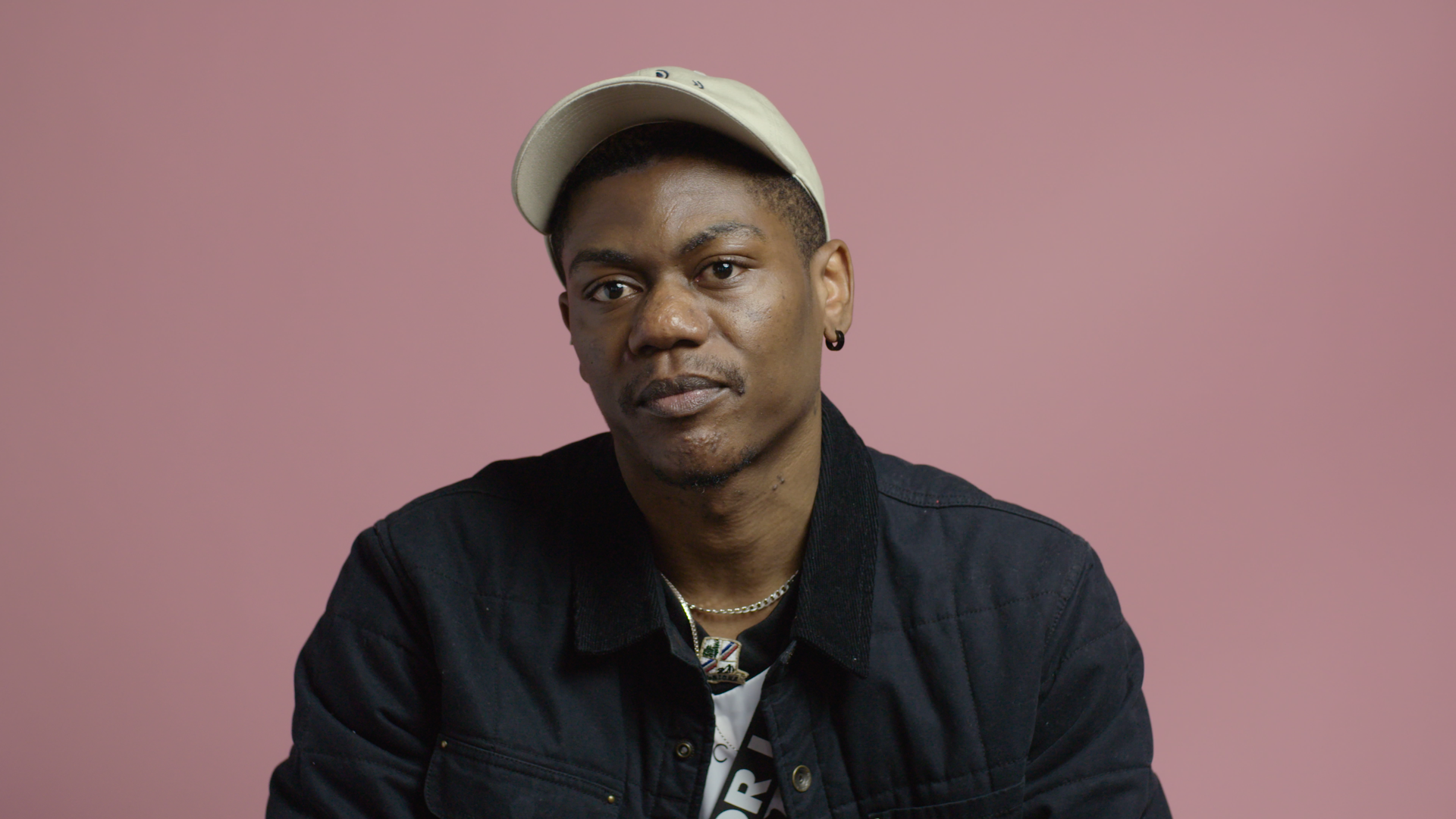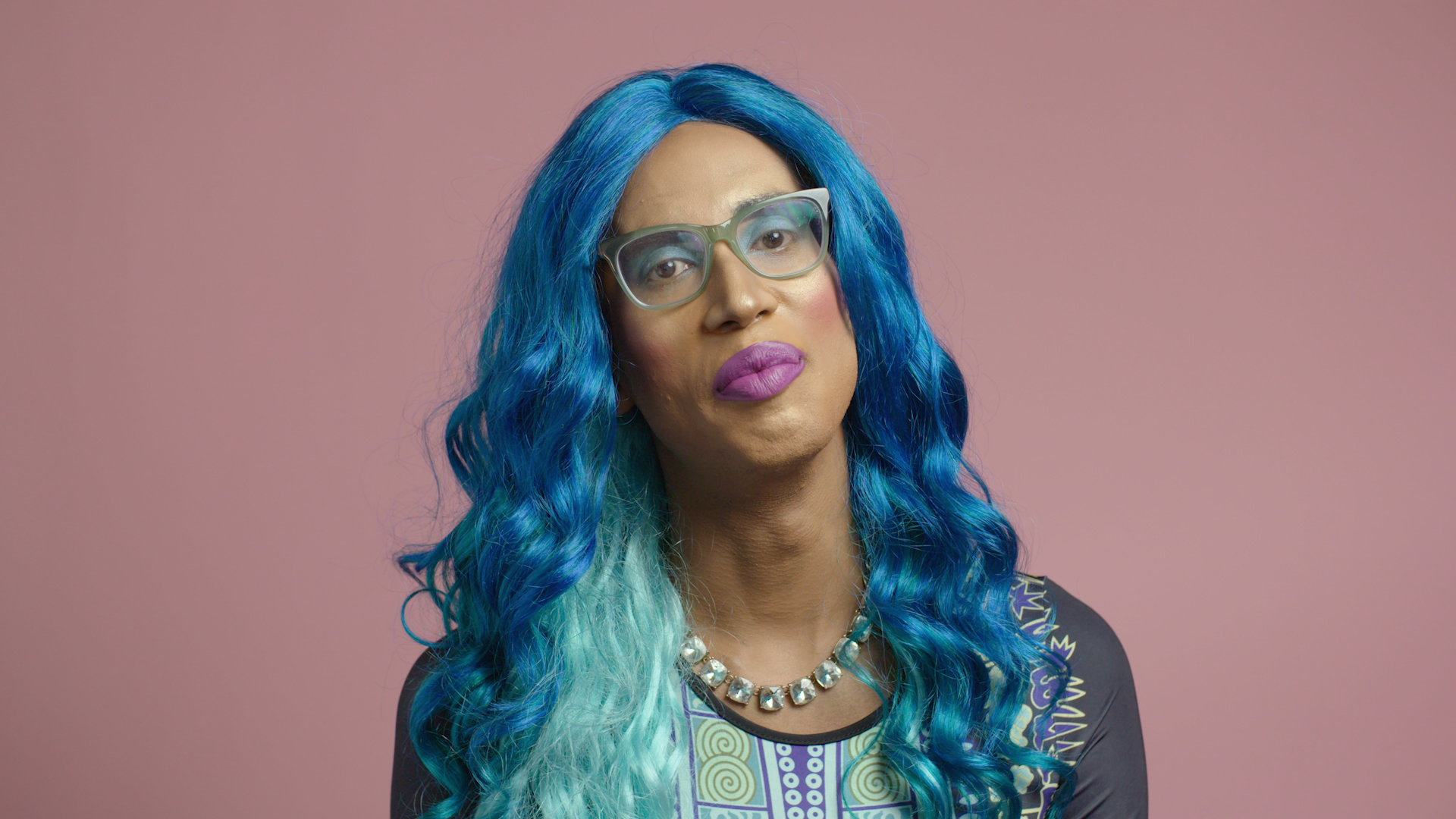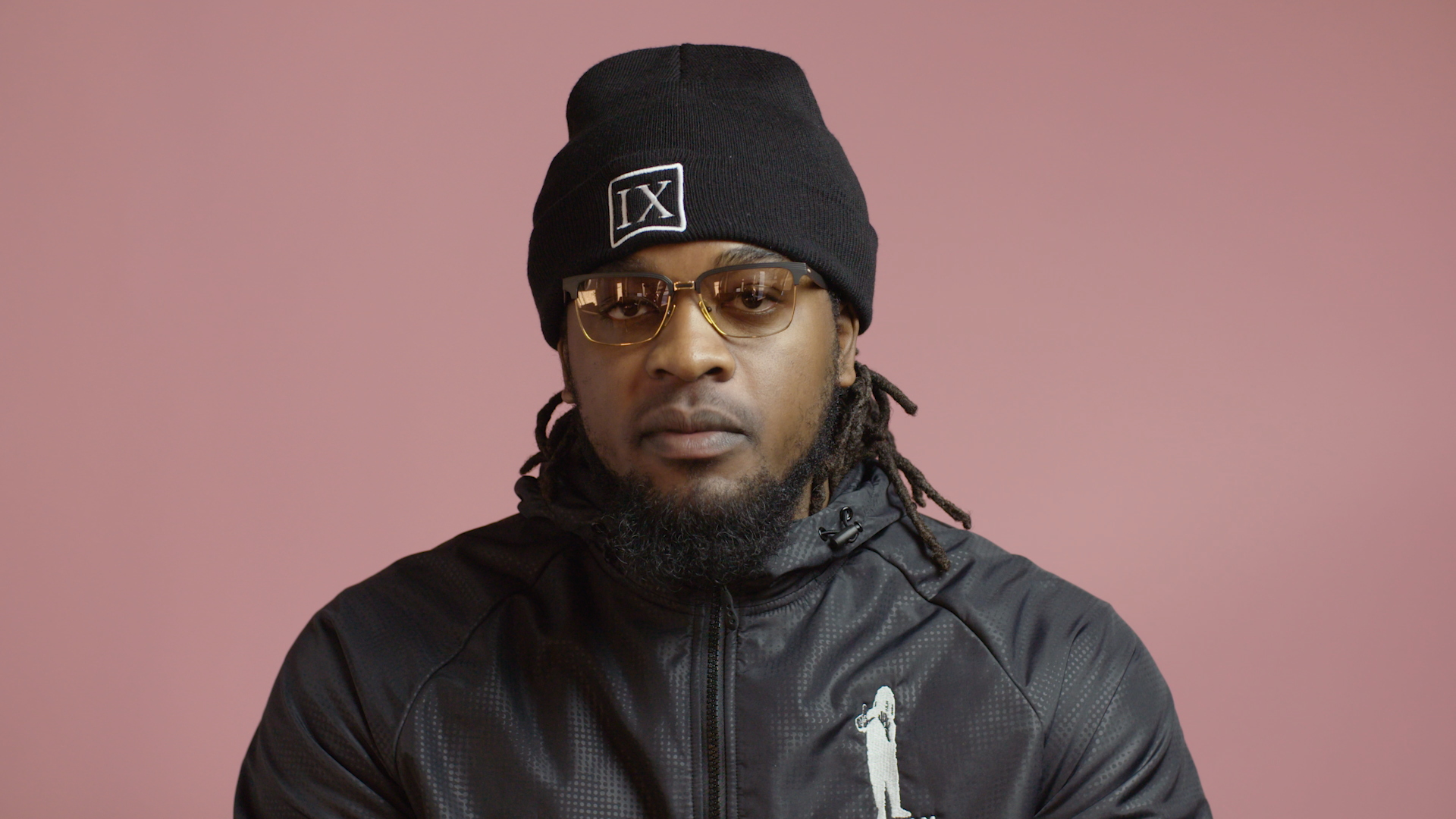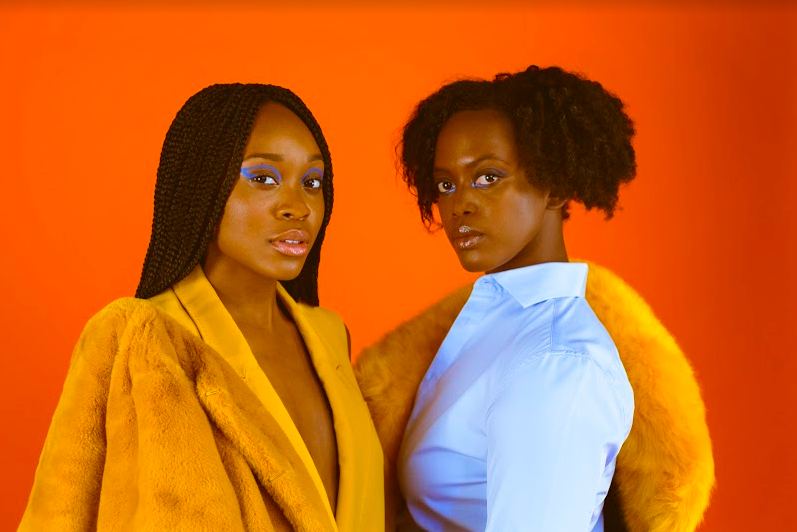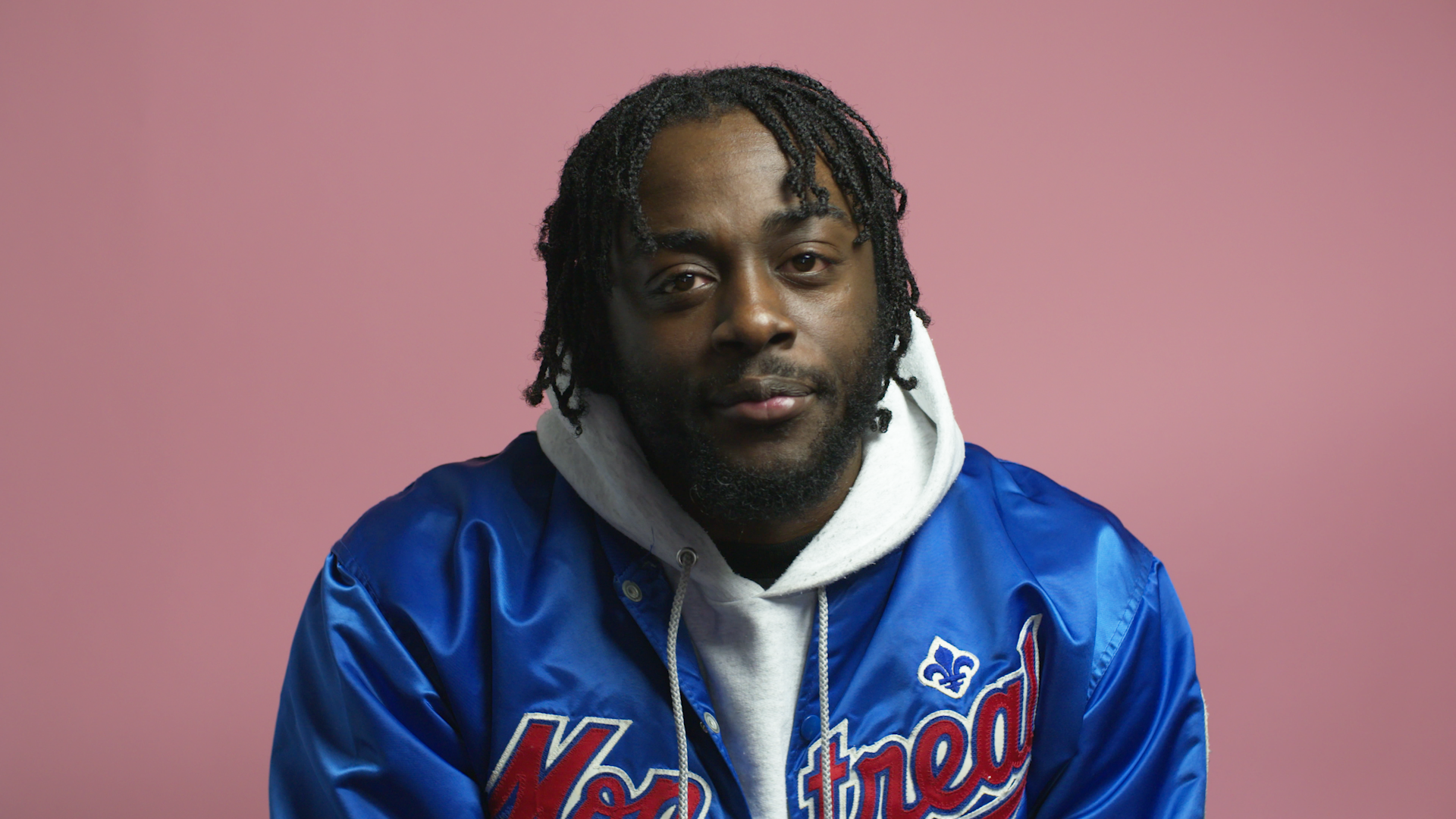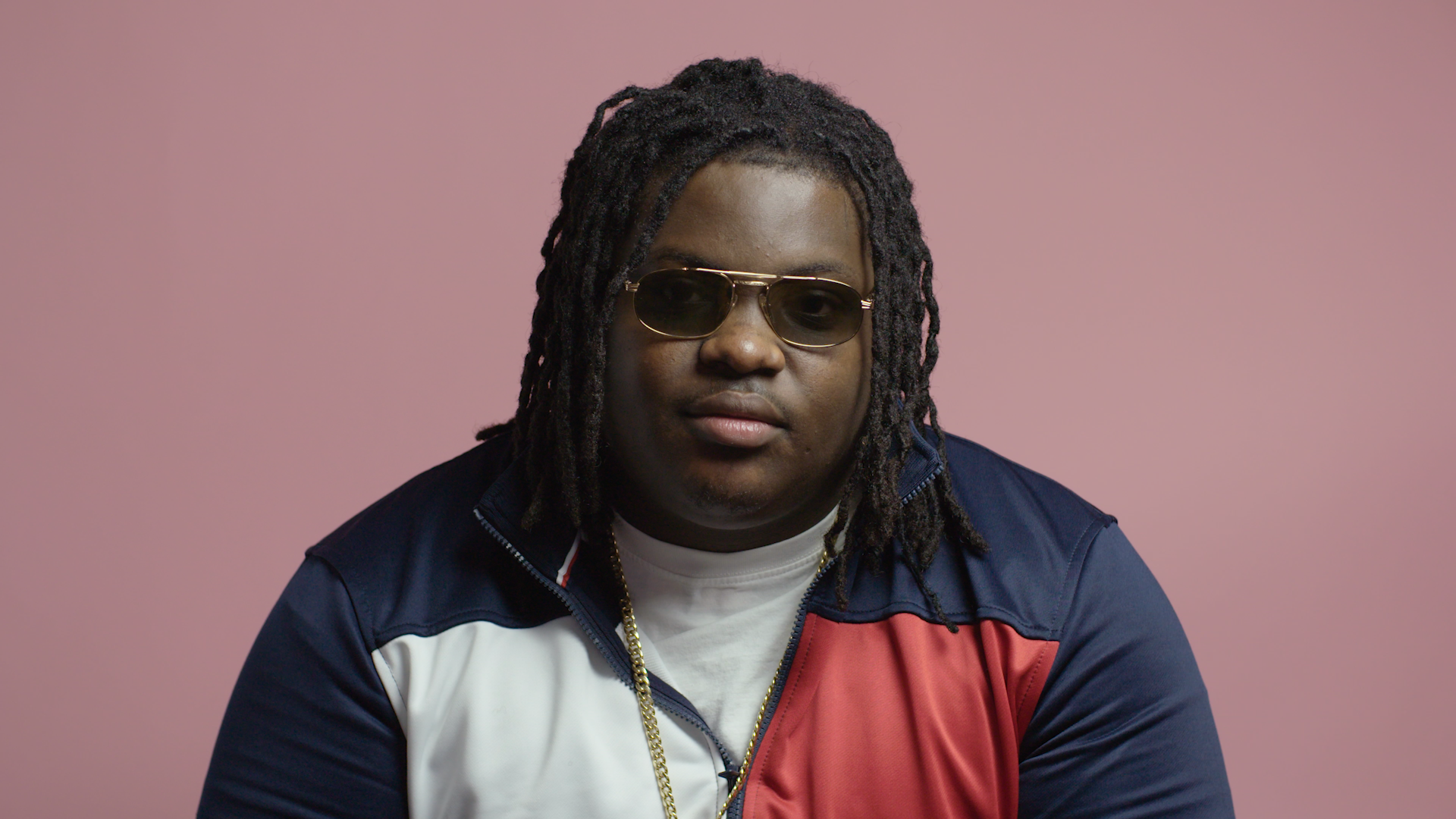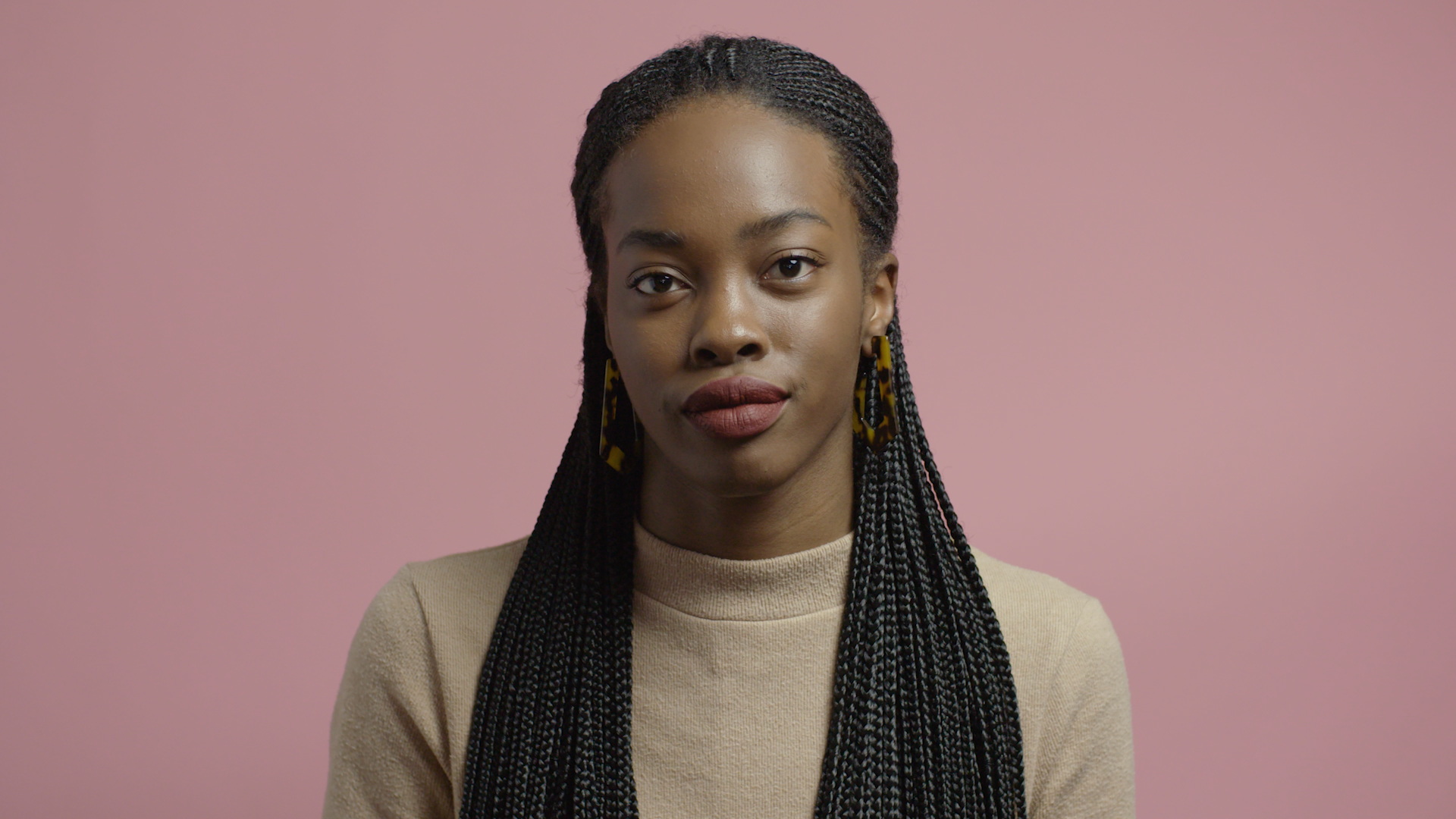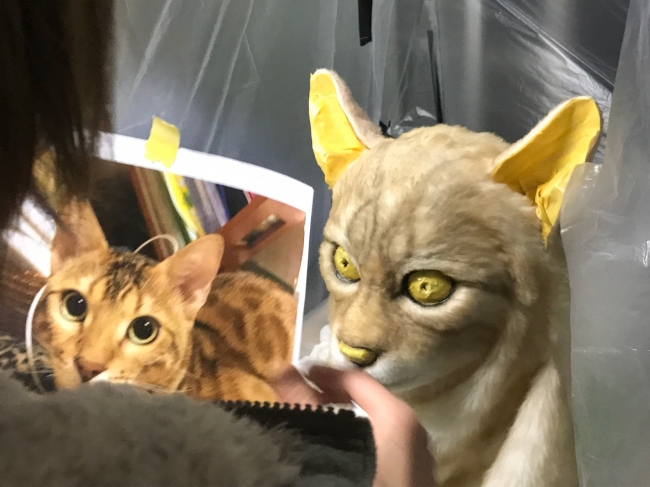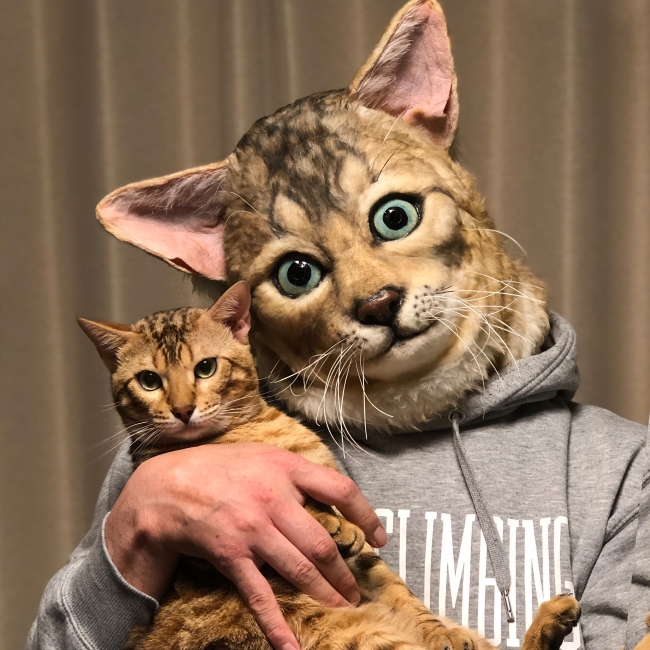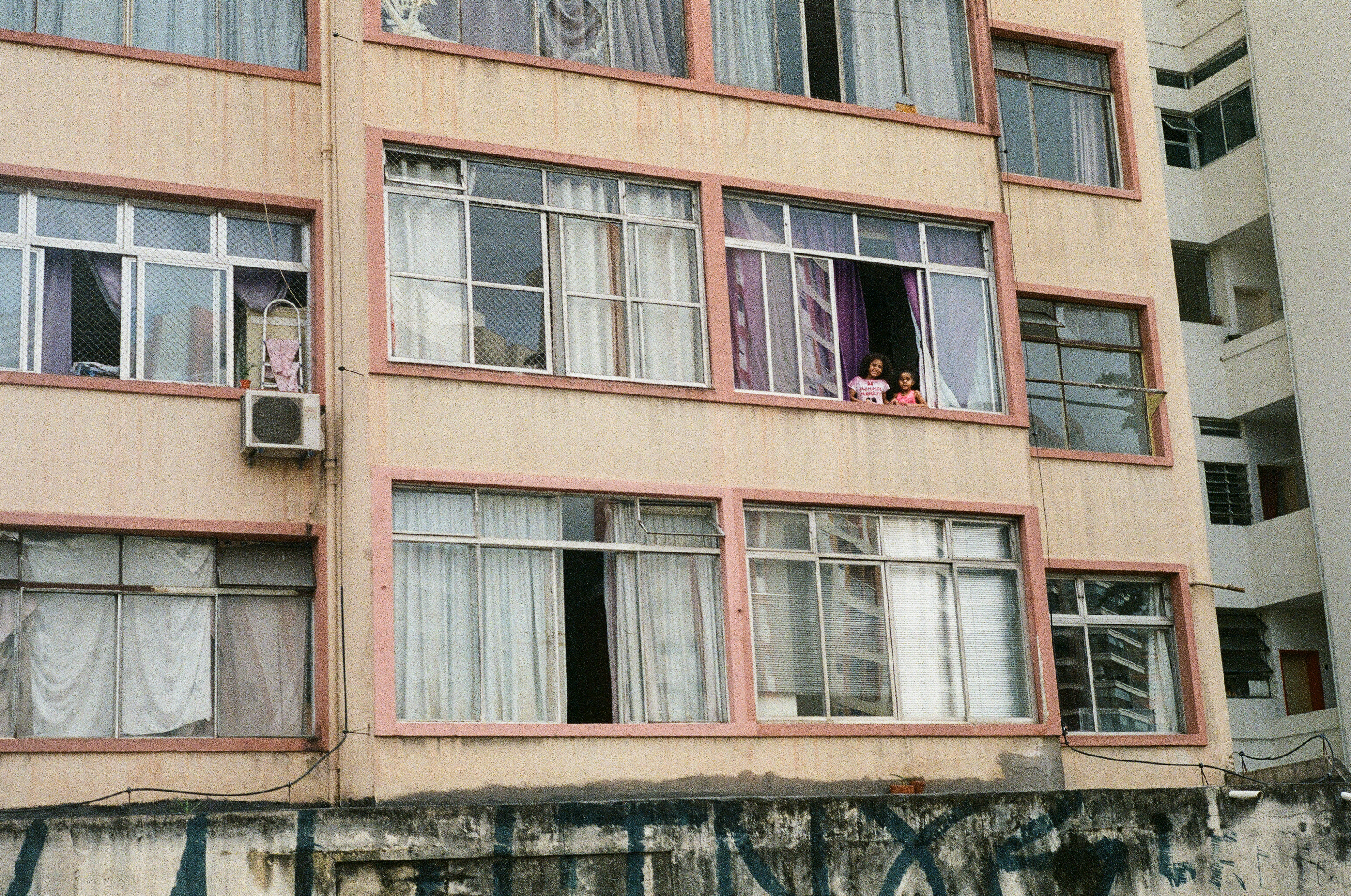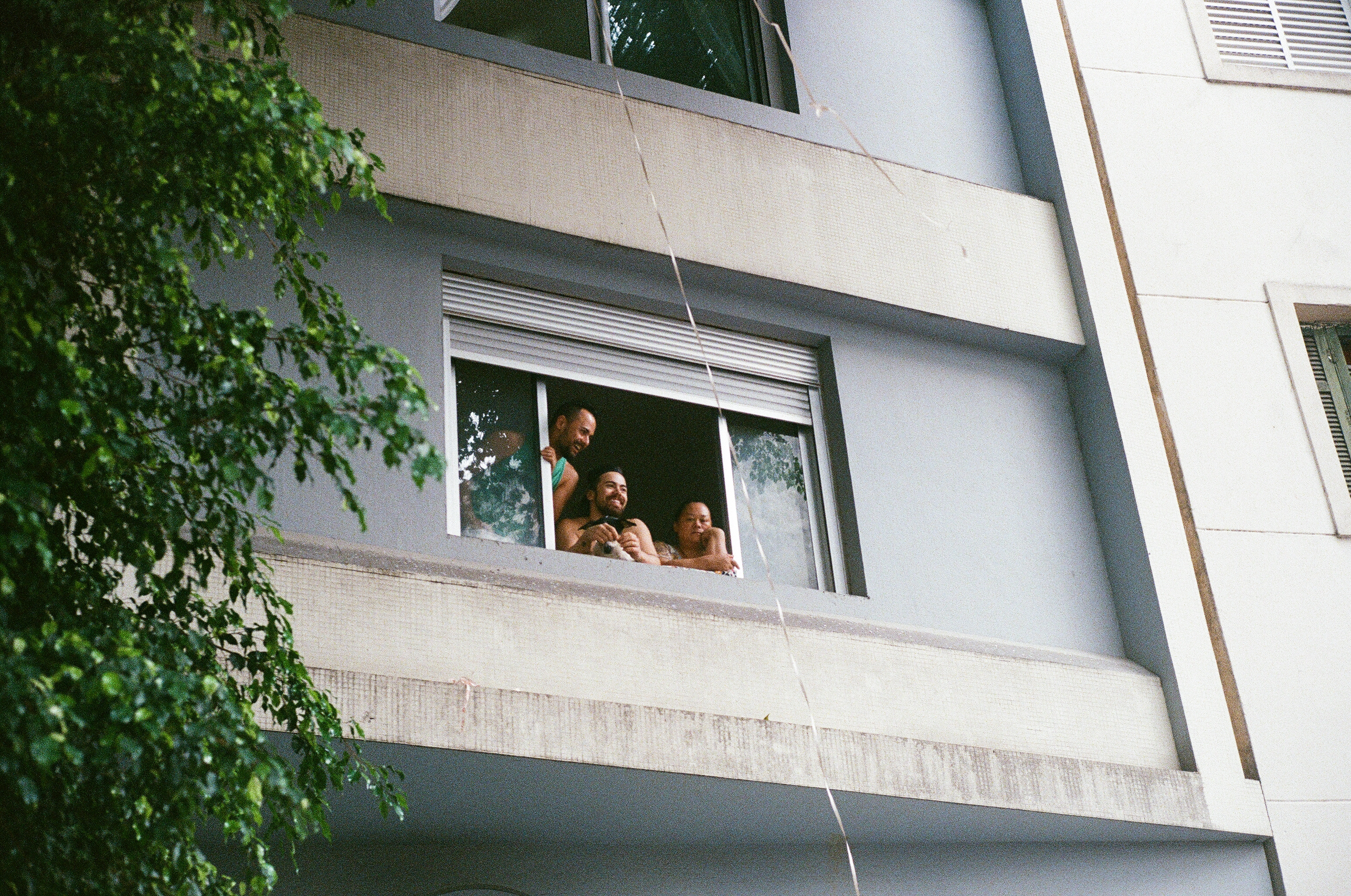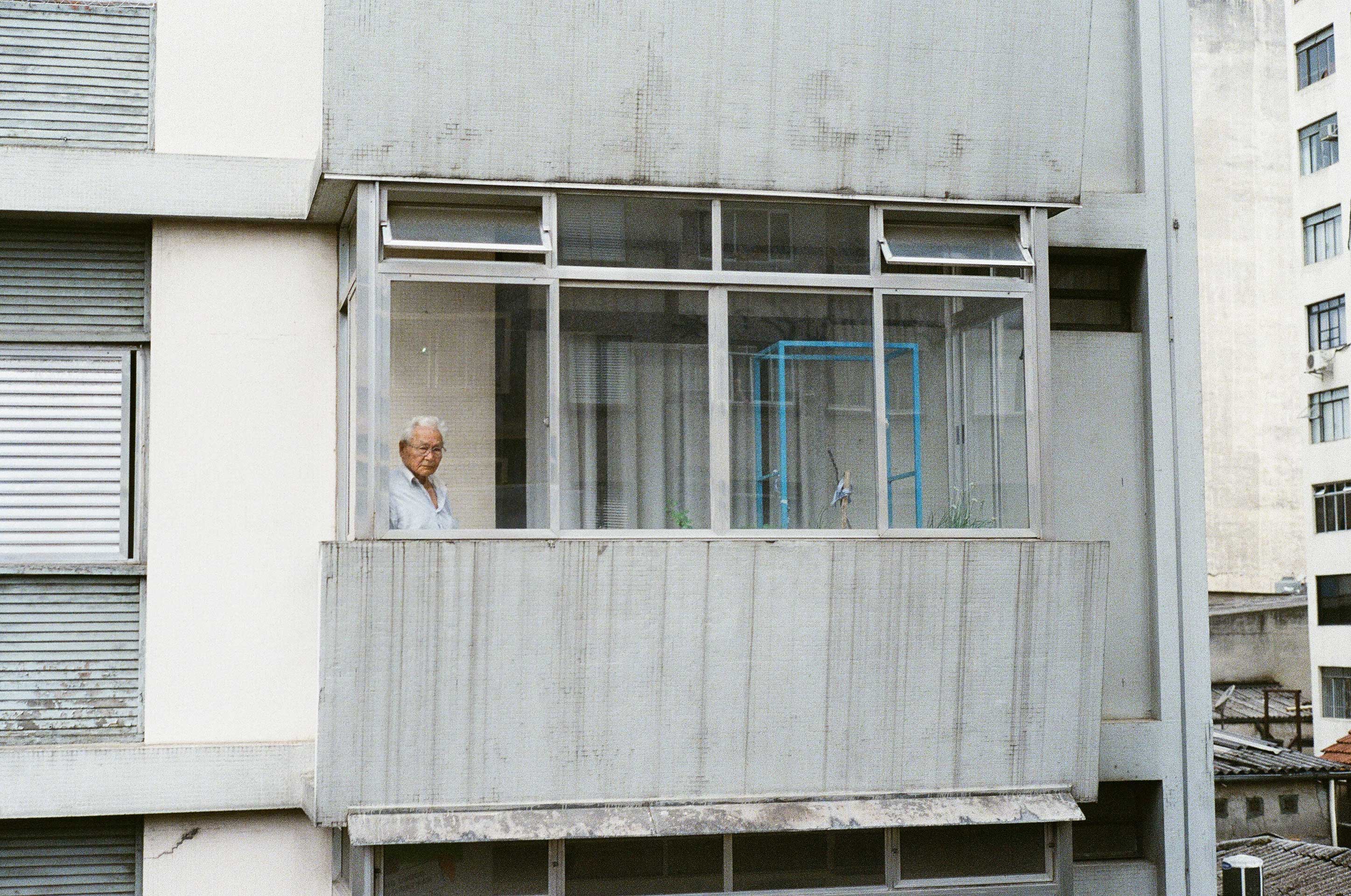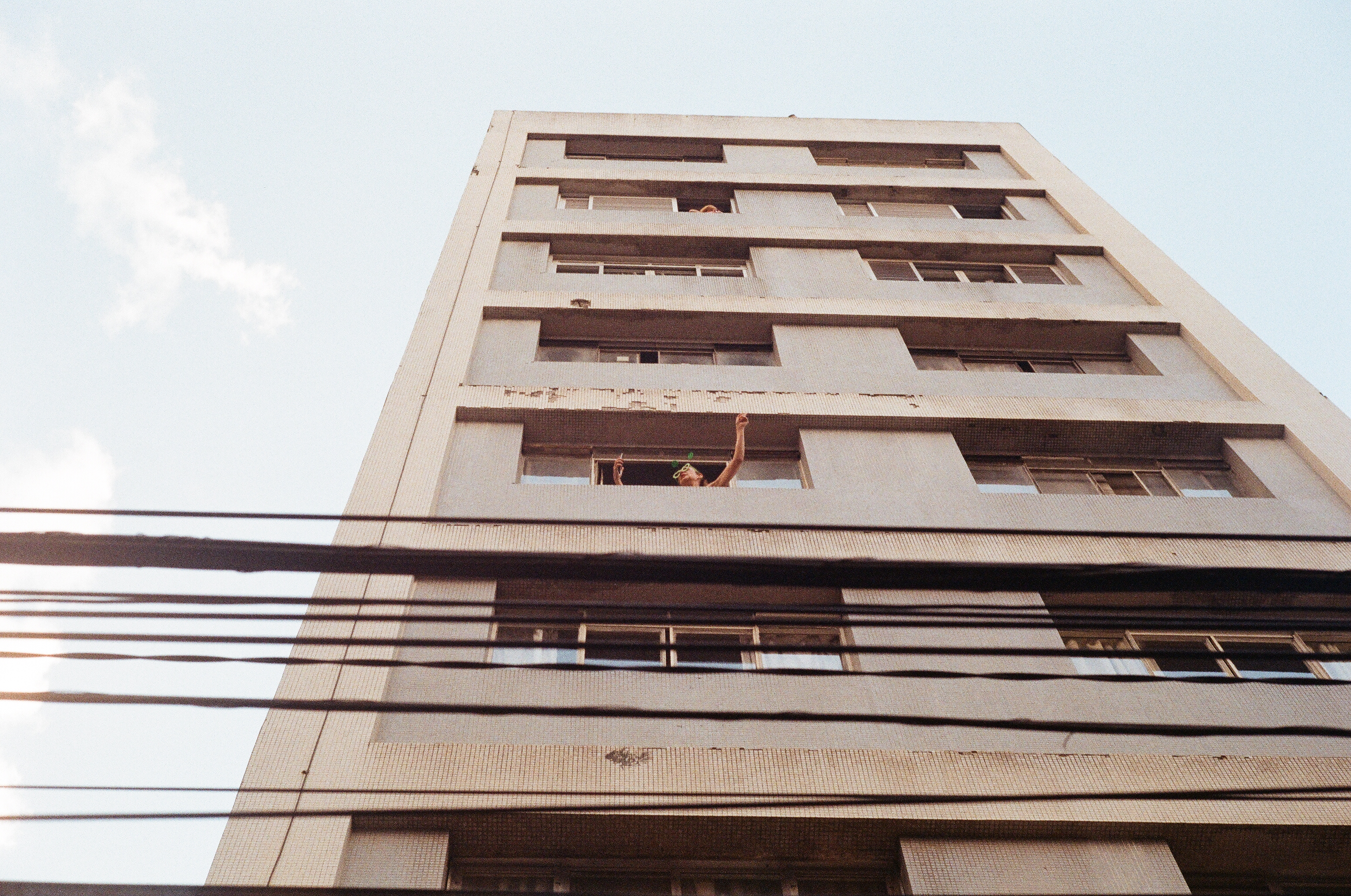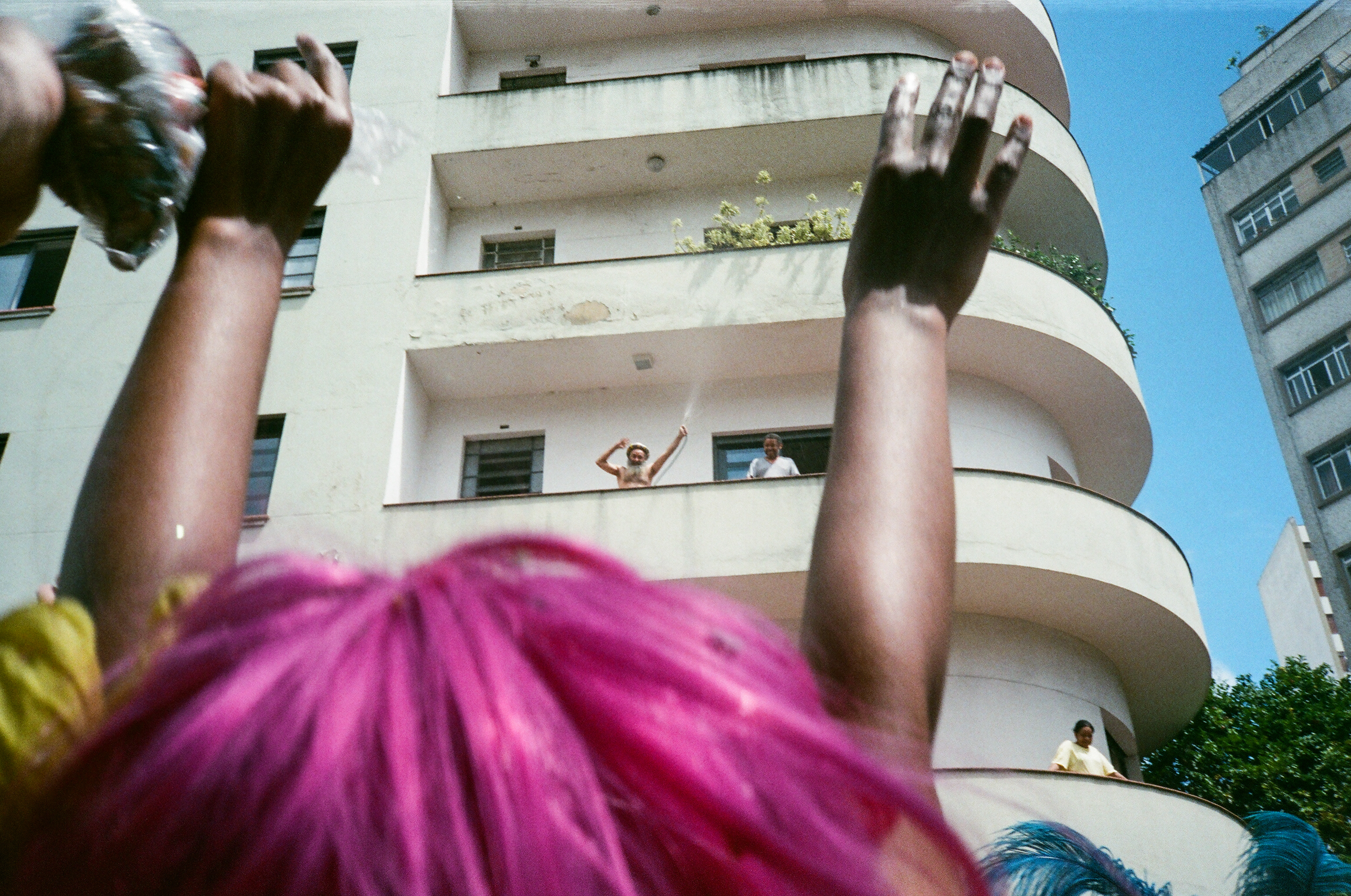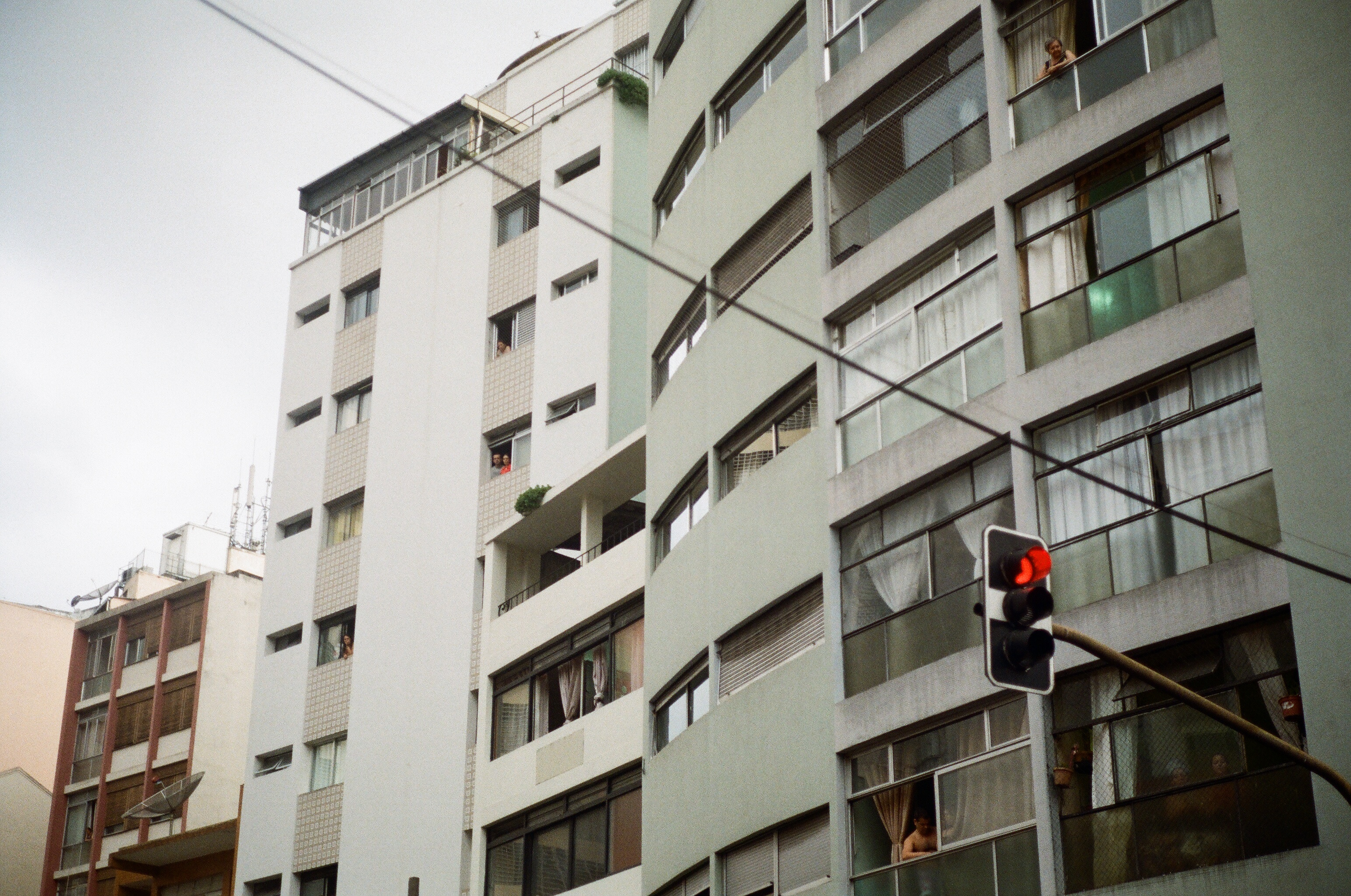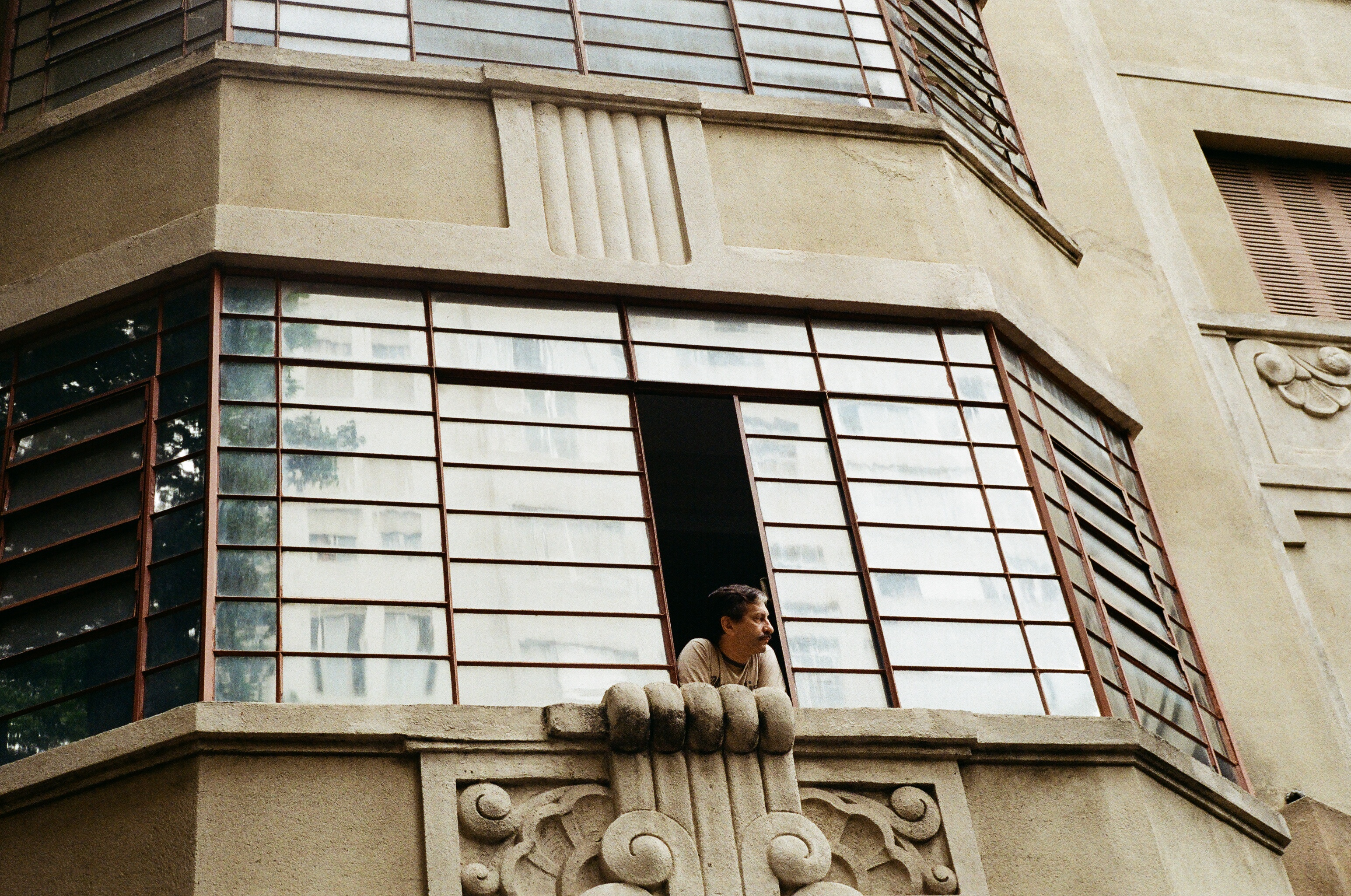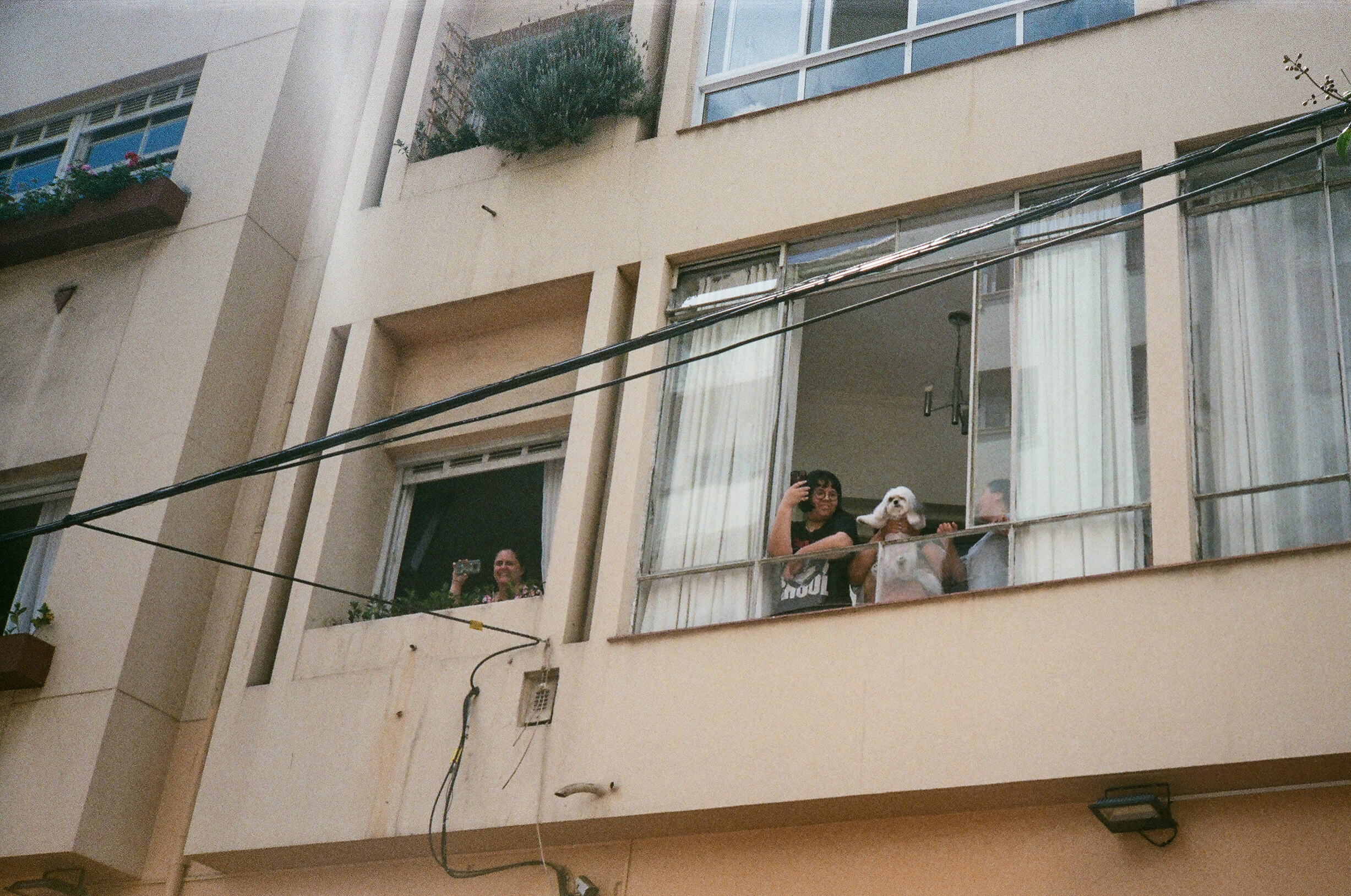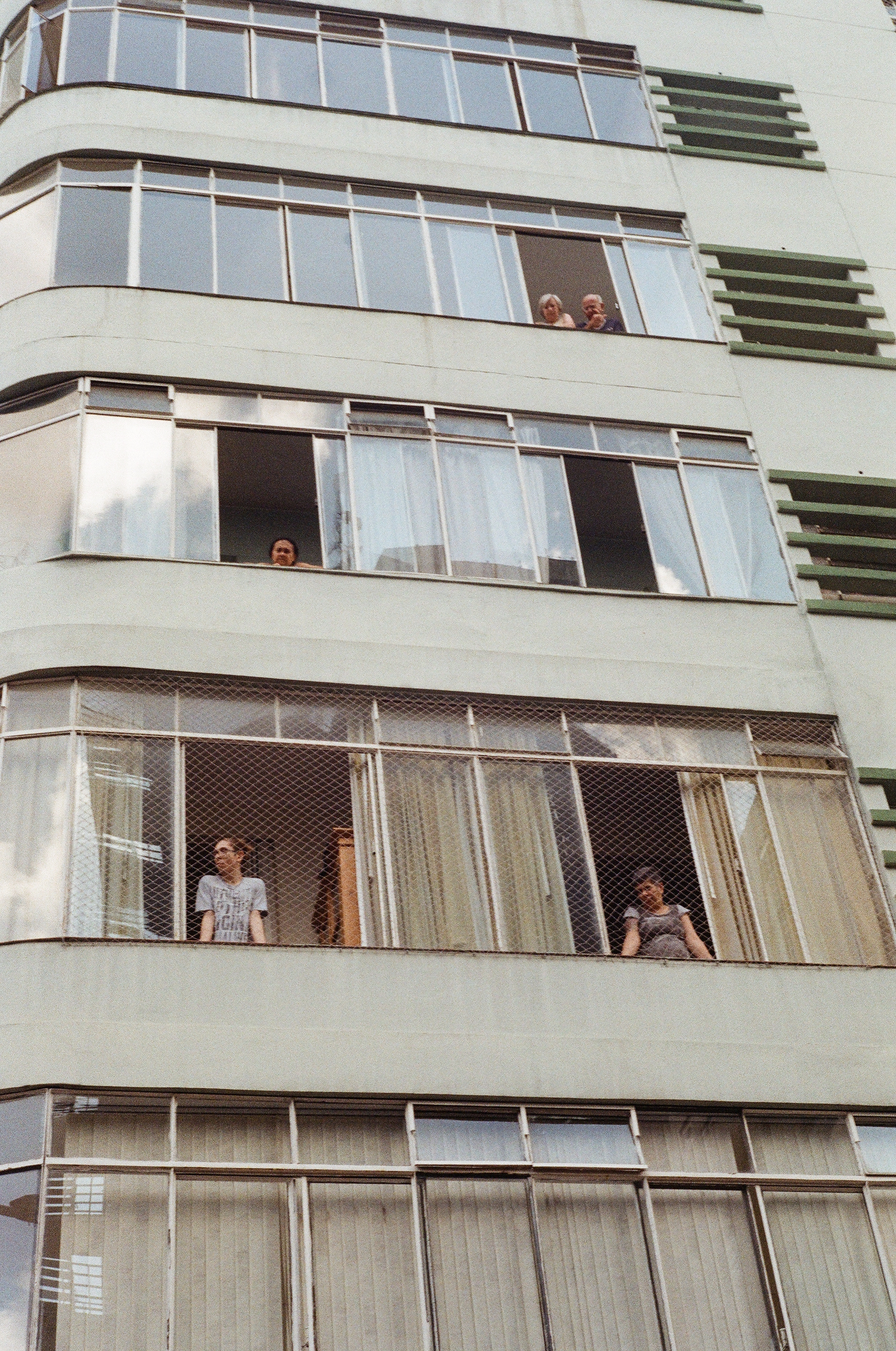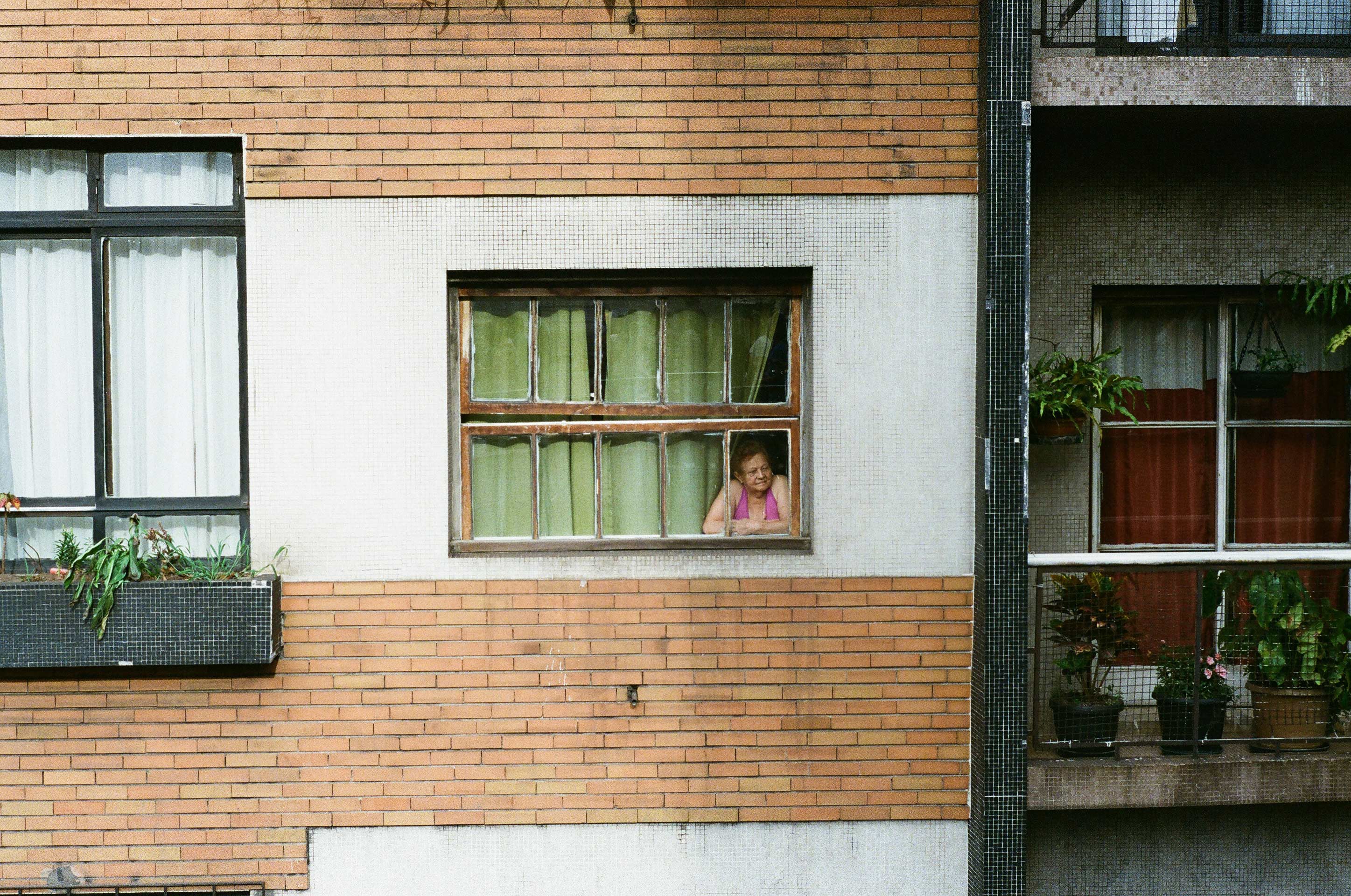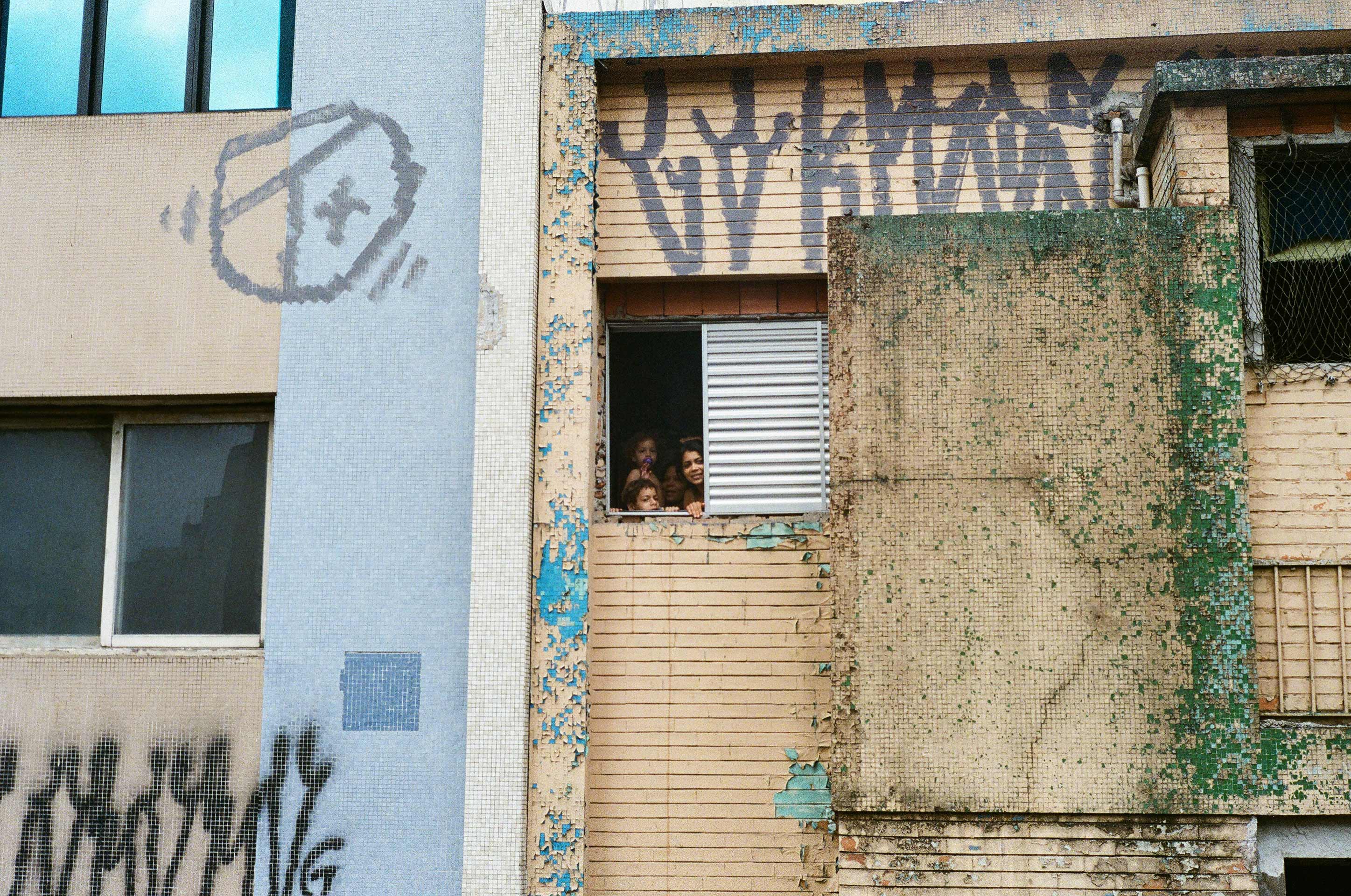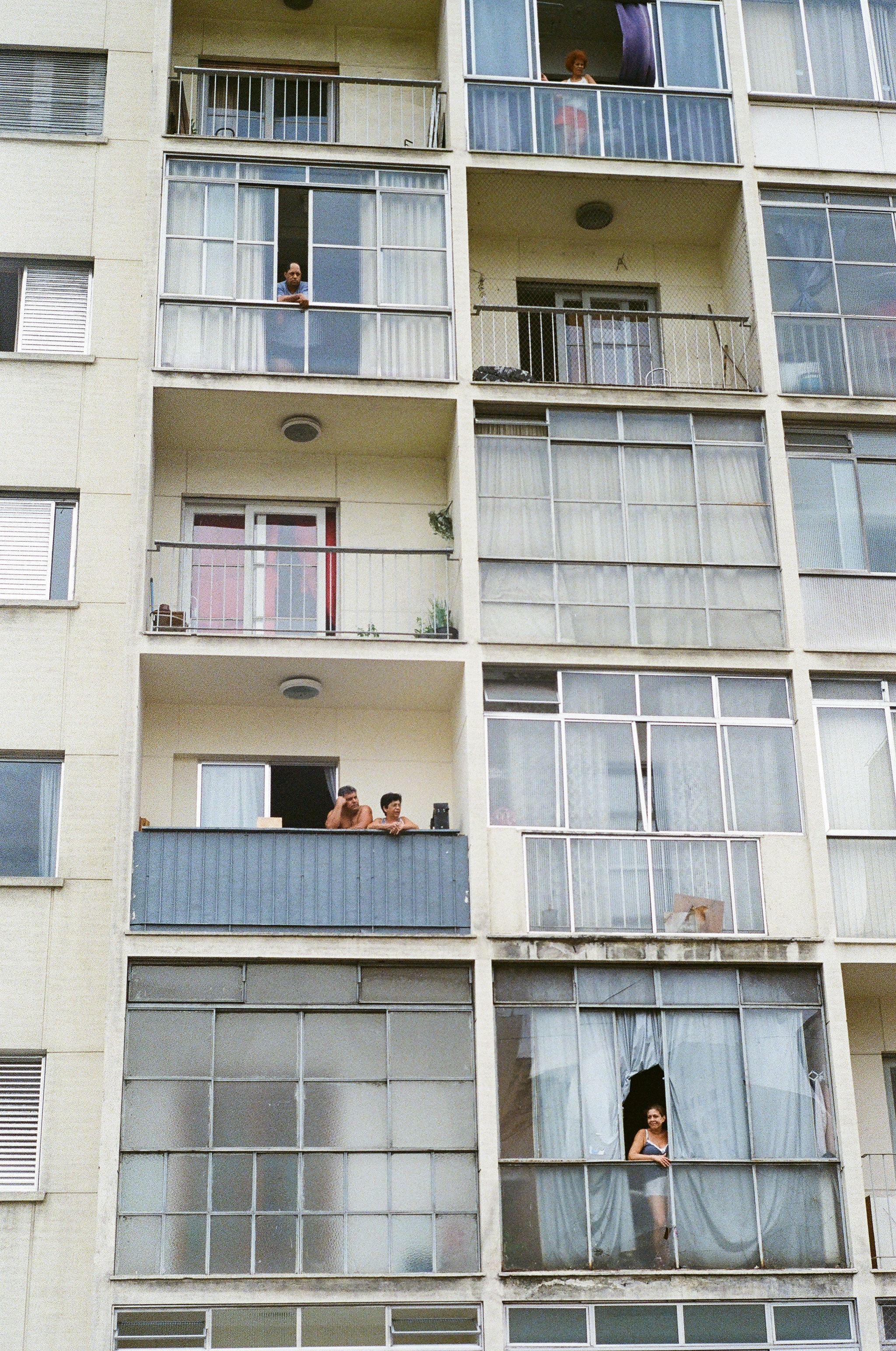This article originally appeared on VICE UK.
If you have made it this far throughout life without generating some sort of enemy or enemies, I am of the belief that you have done it wrong. Sure: It is nice to be nice to people. I'm a big advocate of nice. However: Has someone ever been nice to you in a way that made you hate them? Everyone who ever came in to speak to you at a school assembly, or something. An overly-cheerful ticket inspector. Is this just me? I just have this revolting, gag-like reflex: When someone is nice to me without agenda, I hate them to my core. It cannot just be me.
Work is good for cultivating little one-sided hate affairs. From my desk now I can see one person I actively hate, two people I'm not exactly keen on, and one person I'm on the fence about (maybe I will choose one day to tip over and hate them entirely; perhaps they will be spared). And I'm not the only one: A 7,000-respondent survey from Totaljobs this week found 62 percent of us had a work enemy, with 48 percent of those having one enemy and 43 percent having multiple. Of the 69 percent who said they'd done anything to avoid their work enemy, 17 percent said they’d pulled sick days to avoid them (which I both don't believe and consider to be the behavior of a lame-wad anyway), but the point is... as a news hook for a fun and topical list... it's good!
The man who is simply too loud
Women make their noises sometimes, I concede this—clonking heels on hardwood floors; light, feminine humming; the mild sound of trying to convince themselves they like cottage cheese—but men seem to conduct an orchestra of unique sounds that emit from their body, loudly. From their interactions between their body and various equipment (slammed doors, clattering photocopiers, shouting "FUCK!" directly at a laptop screen); and from the general background static of them being alive. I used to work with this exceptional pink man who used to cheerfully whistle—actually whistle, whistle-while-you-work march-into-the-mines-to-die whistling—and once he'd got comfortable enough whistling aloud in the office, he graduated to fully singing lines of verse, out of nowhere, at a pitch just above a speaking voice, i.e. somewhere between chatting and yelling. That's unacceptable, dude. I'm trying to send an email here. Sing at home. Sing away from me.
The office-all E-mailer
Self-explanatory.
Person who always constantly fucking forgets how to do simple fucking parts of their job
Jobs aren't hard, are they? Everyone has this mad idea that their job is very hard, and that certain hallowed manual labor jobs are also very hard—mining, for some reason, the exemplar of that, but also "working in a factory" and "cleaning"—and then everyone else’s job beyond and below that is not hard, and anyone complaining about tiredness or soreness or mental burnout should nut up. This is because very few jobs are genuinely hard: They batter you with repetition, with the grind after grind after grind of making you wake up and commute in, day after day after day. They make life hard by being a constant concrete-solid wedge in the middle of it. But the actions you do there are very rarely actually difficult. If you spent a month only working on days you actually felt up for working, you'd get more done than if you spent a month going to work 30 days in a row. Somebody who is good at the economy please help.
Still: Some dumbfuck in your office in your exact pay bracket keeps forgetting simple stuff like "how to do email attachments" or "where the invoice.docx template is stored on the shared drive," and you have to keep going over to help them. "Remind me," they keep saying, "what's our fax number?" You point to the Post-It you wrote the fax number on last time they asked for the fax number, which was six days ago. "Hah!" they say. "Imagine still using fax!" Imagine not having the gifts of retainment and independent thought at the age of 29.
The guy who was such a dickhead you all had to get training
Workplace harassment training is obviously a very vital part of the current ecosystem of office life, and refresher courses every six months to a year are more than necessary in a culture that is only now transitioning from "slap the receptionist on the ass as you go past… and tip her a cigarette at Christmas!" to "what do you mean, officer, that's bad?" But there is something particularly grating about all being called in for a half-day training because some guy in sales shouted "BA–DONK–A–DONK!" in the corridor at one of the cleaners and for some reason didn't get fired, and managed to wiggle out of training today because he's playing client golf, while you have to all spend an afternoon cramming a full day's worth of work into a three-hour time slot. That’s annoying, and that makes him your enemy.
The smug boss who denied you a promotion
The natural order of life is to hate your boss: it is an ancient system, older than the earth, a hierarchy that derives from nature. You think the lioness doesn't hate the lion she toils all day for on the savannah? You think the cow doesn’t begrudge the farmer who milks her? We are all of us here, in the dirt, chewing grass and hating upward. That's why that guy in the glass corner office who keeps taking two-hour lunches rattles your cage so much. That’s why you want to bite his throat out—because of nature.
READ:
That kid who got promoted ahead of you
Remember that six-week period where you sensed a promotion might be in the offing—middle manager quit at short notice; no immediate replacement announced; water cooler murmurings about "promoting from within"—so you started actually trying at your job in an effort to get that extra 10K a year? You started dressing like the contract you signed in your first week set out ("business-casual, but leaning toward business") instead, of those worn-out T-shirts you've been getting away with? You wore a tie that time, remember? You actually got in on time four days out of five? Did at least three unnecessary CC emails to your boss showing you were tracking down someone for a problem you sort of maybe caused? Then they promoted Rory, who started a month after you. But remember that week you tried? Remember how productive you were when you were focused? Remember how much you hate Rory, the little fucking cretin, especially as he put you on that Saturday stock indexing shift, smiling all the time as he did it through his little rat tee—
Anyone who is more popular than you
Only I am the center of the universe, dude, stop making the girls from PR laugh out loud. That’s a foul ball.
The Criminal shitter
There is an element of intrigue and suspense to making your enemy the one person in the office who has horrid, hard, unflushable, Guinness-blended shits every morning. This person is always making it to the bathroom before you. And somehow they are always leaving the cubicle door banging just before you make it in but never making themselves known to you, and sometimes the shits are present—bobbing there, brown and proud, staring at you like it has eyes in, forcing you to flush it—and sometimes the ghost of it is there, just the marks down the bowl, but there, in the air, a miasma. Walk out of the bathroom and look every person in the office in the eye. Who is mistily sweating, and staring too intensely at their screen? Who has difficulty standing up and walking elegantly from their desk to the printer? One of these fuckers is the shitter. One of these assholes took the shit. And you will find them so help you God—
Men-only: The power stance pisser
Once worked with a man I can only describe as "curiously vampyric," whose favorite trick was to bowl into the bathrooms after me and adopt a power pose at the urinal—literally as if a power ranger were about to kung-fu an energy orb out of their body, only through his dick—and there he would stand, powerful and steady stream, trying to talk to me about invoices while I tried to wash my hands. A pretty solid rule I like to stick to at work is "please don’t talk to me while you’re holding your dick." See how it works for you.
READ:
Door withholders and door non-thankers
Every company in Britain seems to think that it's so important it's at risk of constant moped-gang robbery, guns-in-the-air staff hold-up or just general violent crime, and as a result they have an intricate scan-in/scan-out staff pass system—a rotating collection of security guards and weird heavy doors that are slow, slow, slow and then very fast to close, even though the only things of any worth in any office is 15 x laptops and 40 x four-liter jugs of milk, nothing else. This means every morning and lunch hour you get caught in this liminal space between heaving a door open and then touching it, just with the very tips of your fingers, to balance it open for the people behind you, an embarrassing and humiliating ritual of human decency. If anyone holds the door for you? "Thank you." You hold the door for anyone else? "Thank you." You don’t even need to say it loudly, just under your breath. Anyone who breaks the rules? Get them in a headlock and march them direct to HR. Get them fired on the spot.
Fruit hog
Listen, I know the only perk your office offers is a box of 40 pieces of fruit for a team of 70 people, but if I see you walking out of there triumphant with a plum, one banana, and a shiny green apple I’m tackling you into the recycling bin while screaming "ONE PIECE OF FRUIT EACH." Without unspoken rules there is anarchy, your greed is not unnoticed.
Anyone who laughs at a joke a member of management clumsily weaves into department speeches
I suppose it’s good that when a scab announces themselves out loud like that in case you’re planning any union agitation, but they’re still going in the nemesis bin, don’t you worry about that.
'Quick favor' asker
If the favor was quick, they’d do it themselves. Don’t do that slow, languid walk up to my desk just to ask me to do your job for you, you pig.
Music controllers
It is likely you have a stereo in your office. It is also likely everyone in your office with access to that stereo has a simply psychotic idea of what music is good to listen to while you’re working. I used to work in a lick-the-envelope-and-wait-until-5 PM office, and in them, listening to any sort of daytime radio or pop playlist is absolutely fine: It’s not like you’re actively concentrating on anything, so if anyone puts a Beyoncé banger on it doesn’t necessarily matter. As soon as your job involves any degree of concentration, though, that shit has to stop: as soon as this country rejects Brexit and enters willfully into my Iron Rule, the only office music allowed by law will be those "lo-fi beats 2 relax 2" YouTube playlists and literally nothing else. Anyone who puts Kelly Clarkson on halfway through a work day goes to the gulag.
But this goes both ways. I think we all agree the most we’ve spiritually felt connected to the ethereal idea of "The Party" is at 4 PM on a Friday afternoon at work, when you all know it’s home-time and nobody’s getting anything done. At that point, it is— and again, when iron rule comes into power, will become law—necessary to put "Thong Song" on as loud as it will go. Anyone who ruins that golden hour by shushing or turning the music down passive-aggressively from their computer because they're "on a phone call"? See you in the gulag, mate!
Office all repliers
"Please take me off this chain"—dude, it's an email, delete it. You could have just spent the energy deleting it. Now we all have to delete it. A thousand clicking fingers, working in unison, to erase your opinion. That’s what you just did to yourself.
READ:
Wireless headphone guy
Curious office beast, this, because I don’t truly understand who is still making decisions over the phone in this, The Year of Our Lord 2K19, but every office in the country has minimum one and up to three obnoxious shithead, knobhead, dickheads who walk around shouting into their laptop on wireless headphones—always walking, always on a laptop, always on wireless headphones so they can’t regulate the volume of their own voices—and yet if I, say, float a desk chair into their path as they walk around shouting, I’m the one that gets sent to HR.
Anyone with loud shoes
Three people in this office regularly wear loud shoes. Don’t know their names but I know the sounds of their walks. They are my enemies, and will be until death.
Exactly one security guard
Convinced that work security guards are the natural progression of the ancient chanting brothers who always seemed to guard bridges in myths, only instead of "one lying and one telling the truth," it goes "one is quite sound and brings your Amazon package to your desk, one routinely forgets who you are even though you’ve worked here four years and won’t let you through the double doors because you’ve forgotten your ID."
That person who thinks their you friend but they are not
I am normally very on my guard during work kitchen encounters anyway—the tight ballet of trying to throw a teaspoon in the sink between pirouetting microwavers and someone trying to put a whole tote bag in the fridge, the design nightmare of five head-height cupboard doors that somehow open into one another—but you have to stay doubly alert when someone tries to make minuscule smalltalk with you: One jag outside of the boundaries of the pre-defined conversation, one accidental genuine enquiry into their weekend, and suddenly you've made a friend.
"Do you ever eat lunch?" they say, and you have to disappointedly admit: yes, every single day. "We should do lunch." Should we? Then you get back to your desk and find a Google Cal invitation—it’s been six months and you’ve just now learned this guy’s called "Jack"—and now you have to accept, and walk to get lunch with them on Friday, and ask about his weekend (don’t ask about his weekend the answer is literally always the same), and now he’s your friend, your work friend, and you have to do this once every two weeks until you leave.
That moment where you have to address that perhaps you are the dickhead and everyone else is normal
It is possible that you are going around your office walking too loudly and coughing into the fridge and leaving toast crumbs everywhere and laminating posters and putting them up above white goods and recycling incorrectly and using the toilet in such a psychotic way that there has to be an office-all email and someone replies to that email and starts the chain all over again, maybe you are wadding up too much kitchen paper towel or using all the teabags or doing your job wrong in such a slight and unnoticeable way that the next person up the chain has to fix it, but never has the energy to tell you how to actually do it because it's easier to just fix it, and maybe you’re slow on the email or your lack of organization ("No, I’ll remember it," you say, you being of course the person who has forgotten four things a week since their inception, not even their birth, their inception), holding other things up, further down the line, or maybe everyone is answering the phone normally and your reluctance to answer a ringing phone—when a phone rings you look at it like a cat scared by a hoover, don't you? Maybe that is what’s bringing this company down, isn’t it, inch by inch by inch, and yeah you float through this job because it doesn’t mean anything to you, but when the CEO sadly makes an announcement at the end-of-year, you immediately shoot your hand up and ask if there’s going to be salary increases, and all around you, faces, turning, imperceptibly, all of them chalking up one final additional mark in their head: That prick is my enemy, they're all thinking, I hate that prick with my life.
Maybe that’s you. Maybe that's just who you are.
Sign up for our newsletter to get the best of VICE delivered to your inbox daily.
Follow Joel Golby on Twitter.
from VICE https://ift.tt/2T7aUZ2
via
cheap web hosting
